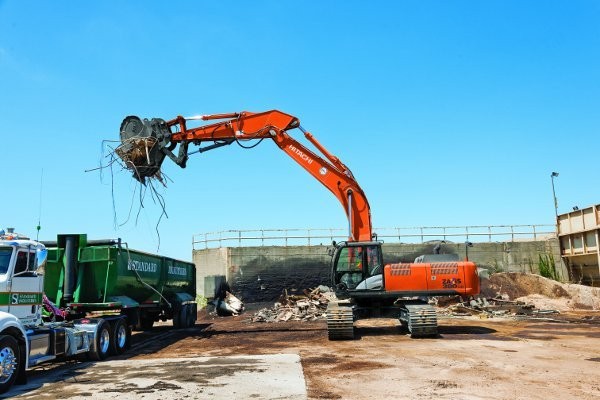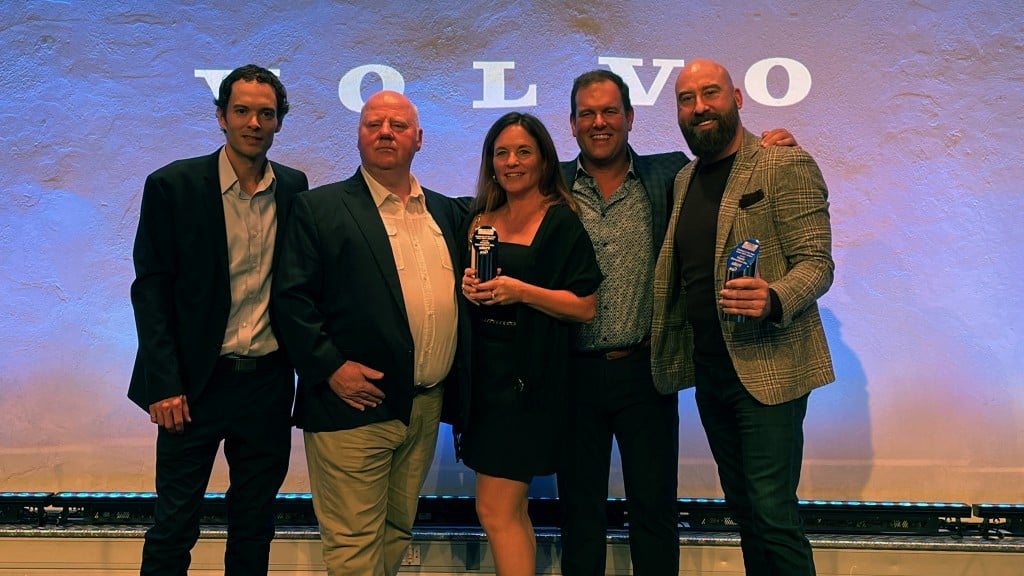
At its core, Standard Industries has always been in the scrap recycling business – receiving and selling scrap metals from a scrap yard in the Los Angeles area. But the company has differentiated themselves from most in recent years.
“Where we’ve worked to differentiate ourselves is in our ability to aggressively provide demolition services – ultimately for the scrap value, but also for contracting to efficiently remove the obsolete structure,” explains Lennie Scheck, co-vice president of Standard Industries. To do that, the company relies on Randy Mayes, their chief estimator.
“As I scan publications for jobs, I look for projects that suit our forté of removing and recycling steel,” Mayes says. “Water towers, bridges – all with steel. And I think our scrap contacts give us a leg up on the competition.” Mayes continues; “We’re looking for steel that we can quickly move to a containerized backhaul out of the Port of L.A. The bigger, the better. That’s where we shine. All of our guys are good torch guys. They know how to load trucks. They know the best machine to use to minimize the effort.”
The demolition experience
“We have the California licenses to perform a variety of demolition projects,” says Scheck. “For over 20 years, we’ve worked to clean up the obsolete parts of Southern California.” Standard Industries has successfully deconstructed part of the Los Angeles Export Terminal – a project that included a bridge stack system standing 25.3 m (83 feet) in the air, 2,133.6 m (7,000 feet) of 3.96-m (13-foot)-diameter steel conveyor tubes, and an advanced coke-conveyor system.
They have also been part of the team that was charged with demolishing, removing and selling parts of a former Shell Oil Tank Farm in Gaviota, a Boeing Rocket Engine Test Facility in Santa Susana, and multiple municipal and industrial demolitions throughout the Los Angeles area. What Standard Industries has accomplished that most have not, is that they have taken on various, huge, and often complicated demolition projects, and made them work to the point that they are recognized as leaders in their field, while keeping the doors open at their scrap yard for day-to-day operations.
At the Boeing Rocket Engine Test Facility, Standard was awarded the lion’s share of the demolition work at the site’s Santa Susana Field Laboratory engine test stand and nuclear test facility – a job that involved work in multiple hazardous environments.
On a demolition job at the Port of Los Angeles, in 2011, Standard says they were an example of how a contractor can perform demolition work, while protecting the environment. The company deconstructed a 47-acre coal-handling facility, providing all facets of the complex site restoration.
Most recently, on the Titan Launch Tower Demolition project at Vandenberg Air Force Base in Lompoc, California, the company removed a launch tower dating to the earliest days of space exploration.
Excavators in action
“When we first started to look at the Hitachi brand, Coastline Equipment, our local Hitachi dealer, provided a demo machine for us to try against the other excavators we had in our fleet,” says Scheck. “Our sales representative, Buck Baird, had always told us the straight story on other equipment we had bought from him, and he promised we’d like the Hitachi.
“Well, we did like it. Our operators told us they were quite impressed with the hydraulic controls. They felt they could finesse demolition pieces from the pile better. I had thought all current-day excavators were the same, but they told me differently.”
Since then, Standard Industries began populating their fleet with Hitachi excavators.
“We’ve been very impressed with the Hitachi excavators,” continues Scheck. “They’re dependable and fuel efficient. Our latest purchases, with their current IT4 engines, allow us to be CARB-compliant (California Air Resources Board) because our machines go everywhere within Los Angeles. And we’ve been impressed with how well the Hitachi machines run with lower-emission equipment. From what we’ve observed, the word is ‘seamless’. Or, you could say, ‘better than expected’.”
Standard Industries points out that they also actively use Hitachi’s ZXLink/JDLink on most of their mobile equipment. They find it helps them keep track of when a machine needs service, track how it is being used or abused, and where it is located. In high-profile areas prone to theft, they use the GPS-based fencing option to track if the machine has been moved, and it is all linked to Coastline.
“We have a very good relationship with Coastline,” notes Scheck. “We think it’s a plus that they also know what’s going on with our machines and can interact with our mechanics on a daily basis.”



